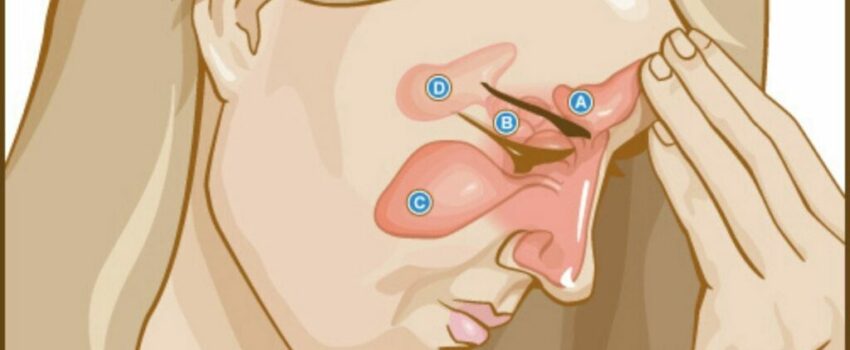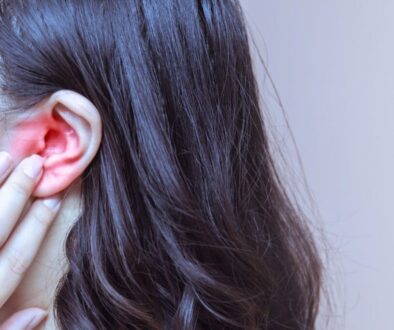Sinus Infection: How to Tell If It’s Viral or Bacterial

Published January 17th, 2020
Most of the time, bacterial and viral sinus infections have similar symptoms. A viral infection is more common and usually goes away on its own. Bacterial ones, on the other hand, can be treated with antibiotics.
However, misuse of antibiotics can make your condition even worse. Administering it on a virus-induced sinus infection will do nothing to alleviate the symptoms. Rather, it can create an antibiotic resistance which can make future infections harder to treat. Thus, knowing the cause of your sinus infection is essential in treating them.
To fully understand the difference between bacterial and viral sinus infection, we need to first know how bacteria and viruses differ.
Bacteria vs. Virus
Bacteria are microorganisms that can live in virtually any type of environment. These single-celled pathogens can survive both extreme cold and extreme heat. Some strains can even live up to thousands of years old.
Meanwhile, viruses cannot live outside their host. They survive within living organisms such as plants, animals, and humans. Once a virus enters your body, it takes over your cells’ ability to reproduce. Instead of growing more cells, it produces viruses that can lead to a whole colony of them living within you.
Bacterial Sinus Infection
When bacteria enter your body, they usually attach themselves to the tissue linings. Most of the time, this doesn’t cause any harm. Some bacteria strains can even help promote digestion and boost the immune system.
But when these pathogens start multiplying rapidly, they can crowd out the host tissues. This, in turn, disrupts normal bodily functions. It also triggers a response from your immune system such as inflammation. An inflamed nasal cavity can lead to a stuffy nose and a whole host of other sinusitis symptoms.
Bacterial sinus infections are often caused by either the streptococcus pneumonia or Haemophilus influenzae strains. If not treated, these infections can lead to other diseases such as strep throat or influenza.
Viral Sinus Infection
When viruses infect the lining of your nasal cavities, it can cause inflammation in that region. This can block your nasal passages making it hard for the sinuses to drain properly. The undrained mucus then builds up leading to a secondary infection.

Symptoms To Watch Out For
As we’ve mentioned, sinus infections caused by viruses are more common. There is no known cure for it yet. But the symptoms can be treated with natural remedies such as neti pots and saline solutions. Viral infections usually go away within five to seven days.
Bacterial infections, on the other hand, are characterized by the following symptoms:
- the infection persists even after 10 days
- your condition has worsened after showing signs of improvement
- high fever of at least 100°F accompanied by postnasal drip, headache, and tenderness in the face
If you’re experiencing the above-mentioned symptoms, its best to consult a doctor. Don’t try to self-medicate with antibiotics as it may cause more harm than good.
How Probiotics Can Help
Though mostly associated with diseases, not all bacteria are harmful. In fact, there are two kinds of bacteria living within our bodies: the good and the bad ones. Maintaining a balance between these two is crucial to good health.
When you take antibiotics, it not only gets rid of the bad bacteria. It also wipes out the good ones. This can cause an imbalance in your microbiome and may weaken your immune system.
This is where probiotics enter the picture. They replenish the good bacteria population and helps restore balance to your microbiome. (Related: Health Benefits of Probiotics)
According to studies, taking a probiotic supplement with antibiotics help prevent antibiotic-associated diarrhea. Experts advise, however, to take the probiotics hours after the antibiotics. This will prevent the antibiotics from wiping out the probiotics together with the harmful bacteria. (Related: How Long Does It Takes For Probiotics To Work)
Benefit From The Latest Advancements In Probiotic Science With Bionaze
Bionaze is a proprietary blend of probiotics proven to promote ear, nose, and throat health, improve digestion, and support your immune system. The active ingredients BLIS K12, and BL-04 are considered among the best probiotics according to science.
Get 25% Off Your First Order when you use BIO25 at checkout!

This Content Has Been Reviewed For Factual Accuracy
This content has undergone thorough fact-checking by our team of internal experts. Learn more about the meticulous editorial standard for our website here.
ADVERTISEMENT

About The Author
Judy Ponio is a professional writer based in the Philippines. Her commitment to communicating factual content in when writing is unmatched. She works hard to cross check reputable sources to ensure her work uses accurate facts.




